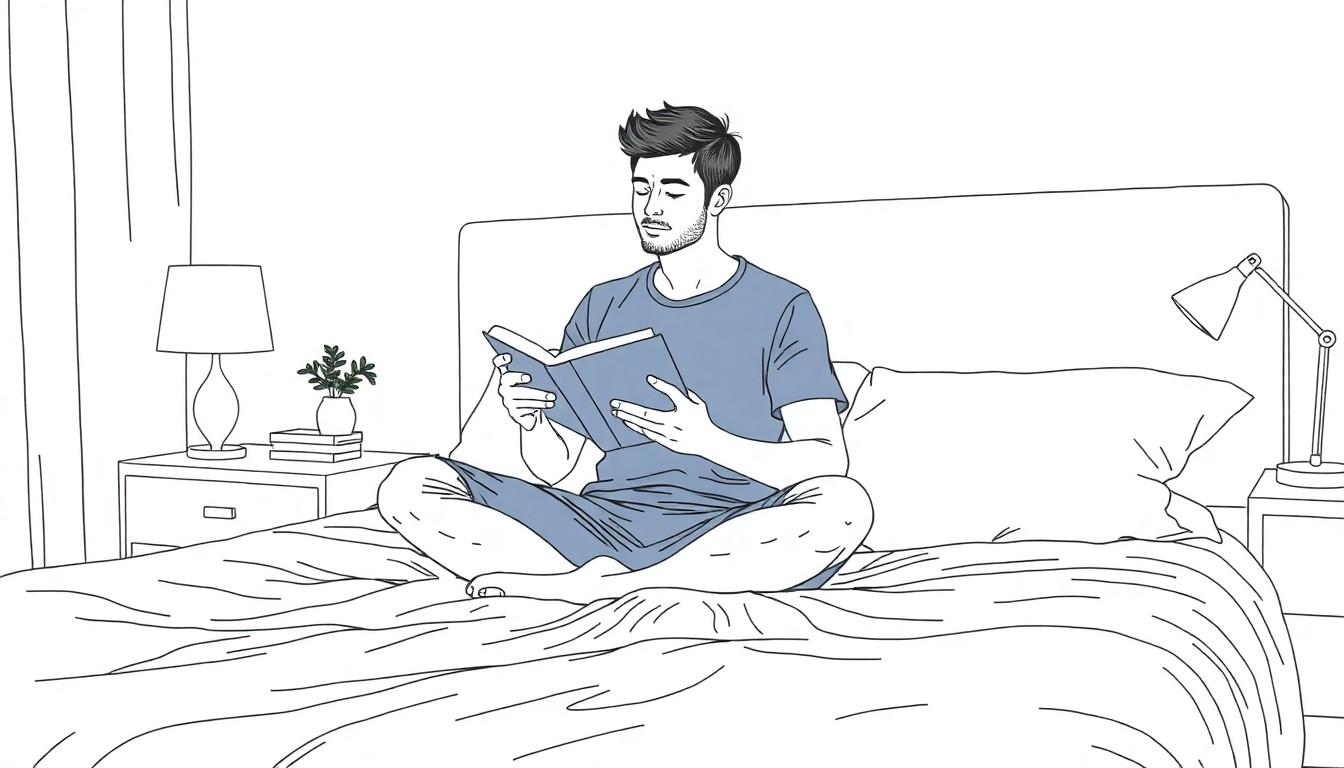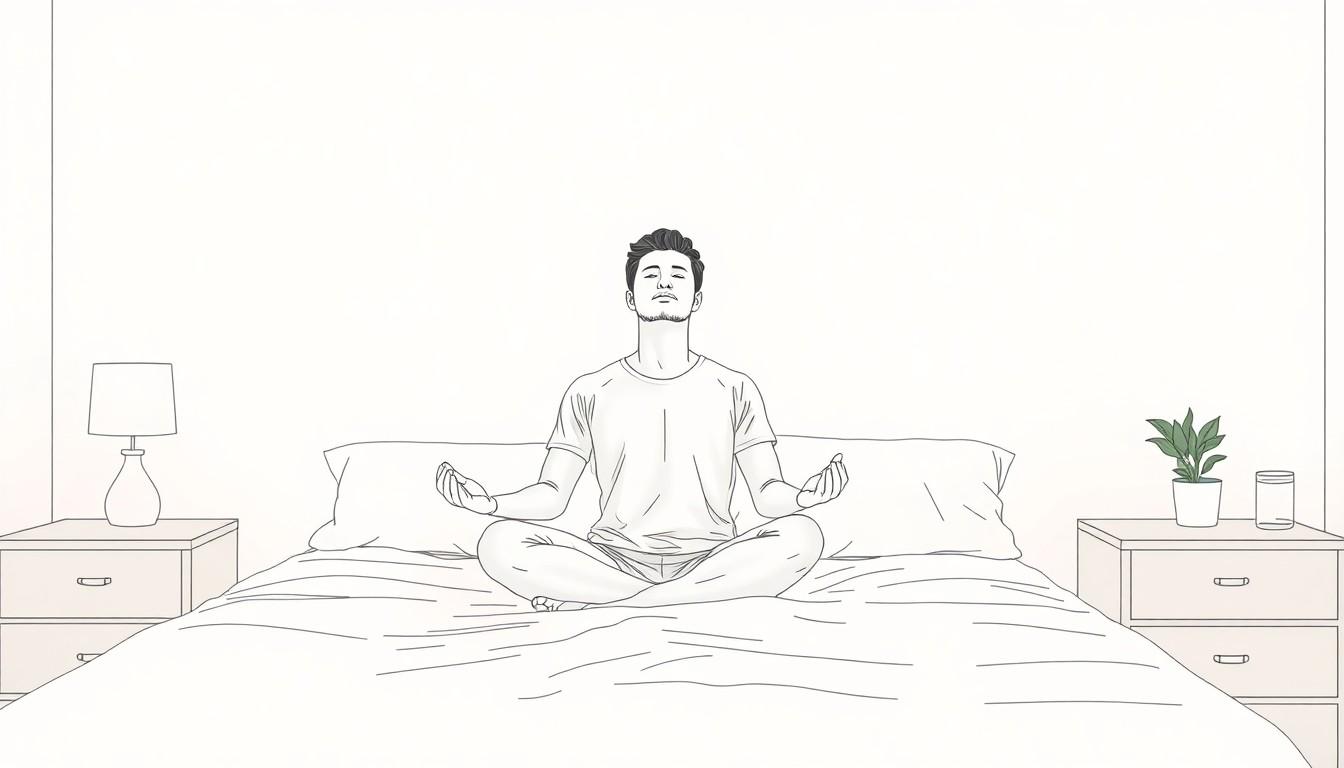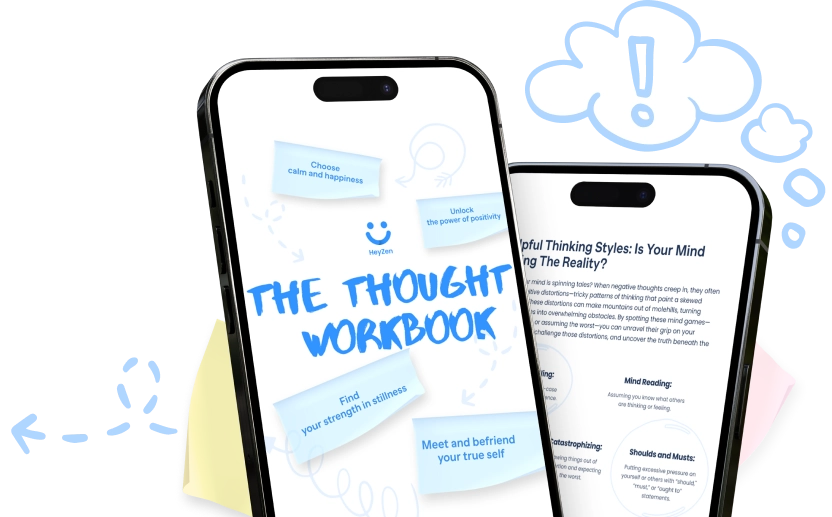Stop Overthinking at Night: 7 Proven Ways to Quiet Your Mind and Sleep Better

Do you find yourself tossing and turning at night, your mind racing with endless thoughts? You’re not alone. Whether you need anxiety or ADHD relief, there are many effective strategies to quiet your mind and make nighttime an opportunity to healthily process emotions and rest.
Today, we’ll explore all practical solutions to help you stop overthinking and find peace of mind for restful sleep!
Key Takeaways
- Create a relaxing bedtime routine to signal your brain it’s time to wind down and prepare for sleep.
- Practice grounding techniques like the 5-4-3-2-1 method to anchor yourself to the present moment.
- Use cognitive strategies such as challenging negative thoughts and reframing worries into actionable steps.
- Try physical approaches like deep breathing exercises and progressive muscle relaxation to calm your mind and body.
- Seek professional help if overthinking persistently impacts your daily life and sleep quality.
Understanding Nighttime Overthinking
Nighttime overthinking is a common phenomenon that affects many individuals, interfering with sleep and overall well-being.
The Science Behind Late-Night Rumination
The brain’s default mode network (DMN) becomes more active during periods of rest, leading to increased self-referential thoughts and reflection on past experiences. Fewer external distractions during nighttime hours also allow the mind to focus on unresolved issues or worries that were pushed aside during the day. This idle state of the brain creates an environment conducive to overthinking, as there are fewer stimuli to occupy attention.
Common Triggers for Overthinking at Bedtime
- Stress: Unresolved work-related issues or personal problems often resurface at bedtime.
- Anxiety: Worries about future events or ongoing situations can intensify in the quiet of night.
- Perfectionism: Setting unrealistic expectations for yourself can lead to rumination on perceived failures or shortcomings.
- Unprocessed emotions: Suppressed feelings from the day may emerge as you lie in bed.
- Caffeine consumption: Late-day intake of caffeinated beverages can increase mental alertness and contribute to racing thoughts.
- Electronic device use: Exposure to blue light from screens can disrupt melatonin production and stimulate brain activity.
- Irregular sleep schedule: Inconsistent bedtimes can throw off your body’s natural sleep-wake cycle, making it harder to quiet your mind.
Creating a Relaxing Bedtime Routine

Establishing a consistent bedtime routine helps signal your brain that it’s time to wind down and prepare for sleep.
Developing a Wind-Down Ritual
A relaxing wind-down ritual is crucial for transitioning from the day’s activities to a restful state. Start by setting a specific time to begin your routine, ideally 30-60 minutes before your intended bedtime, and include such calming activities as:
- Sipping herbal tea
- Taking a warm bath
- Practicing gentle stretches or yoga
- Reading a light novel
- Listening to soothing music or nature sounds
- Engaging in mindfulness meditation or deep breathing exercises
Experiment with different combinations to find what works best for you. Most importantly, remember that consistency is key, as repetition helps reinforce the signal to your brain that it’s time to relax and prepare for sleep.
Disconnecting from Technology
Digital devices can stimulate your mind and disrupt your natural sleep-wake cycle, making it harder to quiet racing thoughts before bed. To create a tech-free environment conducive to sleep:
- Establish a “digital sunset” 1-2 hours before bedtime.
- Remove electronic devices from your bedroom.
- Use blue light filtering apps or glasses if late-night screen use is unavoidable.
- Replace scrolling social media with calming activities like journaling or light reading.
By disconnecting from technology, you’re less likely to engage with stimulating content that can trigger overthinking. Instead, focus on gentle, offline activities that promote relaxation and prepare your mind for restful sleep!
Practical Strategies to Calm Racing Thoughts

Scheduling Worry Time
Set aside 15-20 minutes per day to actively think about and process your worries. This practice allows you to acknowledge your thoughts without letting them consume your evening hours. When anxious thoughts arise at bedtime, remind yourself that you’ve already dedicated time to address them earlier, and they can wait until your next scheduled worry session!
Using Grounding Techniques
Grounding techniques help anchor you to the present moment, diverting attention from racing thoughts. The 5-4-3-2-1 method is particularly effective for engaging all your senses and redirecting your mind to the immediate surroundings:
- Identify 5 things you can see.
- Notice 4 things you can touch.
- Focus on 3 things you can hear.
- Recognize 2 things you can smell.
- Acknowledge 1 thing you can taste.
Practicing Mindfulness and Meditation
Mindfulness and meditation help train your brain to focus on the present moment, reducing anxiety about past events or future worries. Start with short, guided meditations designed specifically for sleep. Focus on your breath, allowing thoughts to come and go without judgment.
Consider trying different meditation techniques, such as body scan meditations or loving-kindness practices, to find what works best for you. Even dedicating just 5 minutes each evening to mindfulness can make a substantial difference in your sleep quality and overall well-being.
Cognitive Techniques for Managing Overthinking
Challenging Negative Thoughts
Identify and challenge negative thoughts that fuel your restless mind. Ask yourself:
- Is this thought based on facts or assumptions?
- What would you tell a friend in a similar situation?
- Are you catastrophizing or jumping to conclusions?
So, track and analyze your thoughts objectively to recognize cognitive distortions and develop more balanced, realistic thinking patterns.
Reframing Worries into Actionable Steps
You can transform abstract worries into concrete, solvable problems. Follow these steps to reframe your concerns:
- Identify the core worry.
- Break it down into smaller, manageable parts.
- Develop specific action steps for each part.
- Set realistic timelines for addressing each step.
For example, if you’re worried about a work presentation, break it down into tasks like researching, creating slides, and practicing delivery. This approach shifts your focus from anxiety to problem-solving, giving you a sense of control and direction.
Also, use the “worry tree” technique:
- Ask: “Is this a hypothetical situation or a current problem?”
- For hypothetical worries, try to just let it go.
- For current problems, brainstorm possible solutions.
- Choose the most viable solution and create an action plan.
This way, you direct your mental energy towards productive problem-solving rather than unproductive rumination.
Physical Approaches to Reduce Nighttime Anxiety
Breathing Exercises for Relaxation
Controlled breathing is a powerful tool to quiet racing thoughts. Deep, slow breaths activate your parasympathetic nervous system, reducing stress and anxiety. Try the 4-7-8 technique: inhale for 4 counts, hold for 7, and exhale for 8. This method requires concentration, but it’ll divert your attention from worries. Also, you can try outbox breathing: inhale for 4 counts, hold for 4, exhale for 4, and hold for 4. Repeat this cycle for 5-10 minutes to calm your mind and prepare for sleep.
Progressive Muscle Relaxation
Progressive Muscle Relaxation (PMR) is an effective method to release physical tension and mental stress. Start by tensing and then relaxing each muscle group in your body, beginning with your toes and moving upward to your head. Tense each muscle for 5-10 seconds, then release and feel the tension melt away. This practice not only relaxes your body but also focuses your mind on the present moment, reducing anxiety, promoting sleep, and signaling to your body and mind that it’s time to unwind and prepare for rest.
When to Seek Professional Help
Professional support becomes crucial when overthinking significantly impacts your daily life and sleep quality.
Signs That Overthinking May Be a Bigger Issue
Persistent rumination may indicate a more serious underlying condition. Watch for these red flags:
- Difficulty concentrating or making decisions
- Increased irritability or mood swings
- Physical symptoms like headaches or stomach issues
- Withdrawal from social activities
- Persistent fatigue or changes in sleep patterns
- Declining performance at work or school
- Feelings of hopelessness or worthlessness
If you experience several of these symptoms for more than 2 weeks, it’s time to consult a mental health professional.
Types of Therapy for Persistent Rumination
Various therapeutic approaches can effectively address chronic overthinking:
- Cognitive Behavioral Therapy (CBT) helps identify and reframe negative thought patterns.
- Mindfulness-Based Cognitive Therapy (MBCT) combines CBT techniques with mindfulness practices to break rumination cycles.
- Acceptance and Commitment Therapy (ACT) focuses on accepting thoughts while committing to value-driven actions.
- Dialectical Behavior Therapy (DBT) teaches skills for emotional regulation and distress tolerance.
- Exposure Therapy gradually exposes you to feared situations, reducing anxiety over time.
- Interpersonal Therapy (IPT) addresses relationship issues that may contribute to overthinking.
A mental health professional can determine the most suitable approach based on your specific needs and symptoms. Remember, seeking help is a sign of strength, not weakness.
Conclusion
Breaking free from nighttime overthinking is a journey that requires patience and practice. Remember that change takes time, so be kind to yourself as you develop new habits. Experiment with different techniques to find what works best for you. With persistence, you’ll soon find yourself drifting off to sleep more easily, leaving worries behind. Sweet dreams await as you embrace a calmer, more peaceful approach to your nights!








